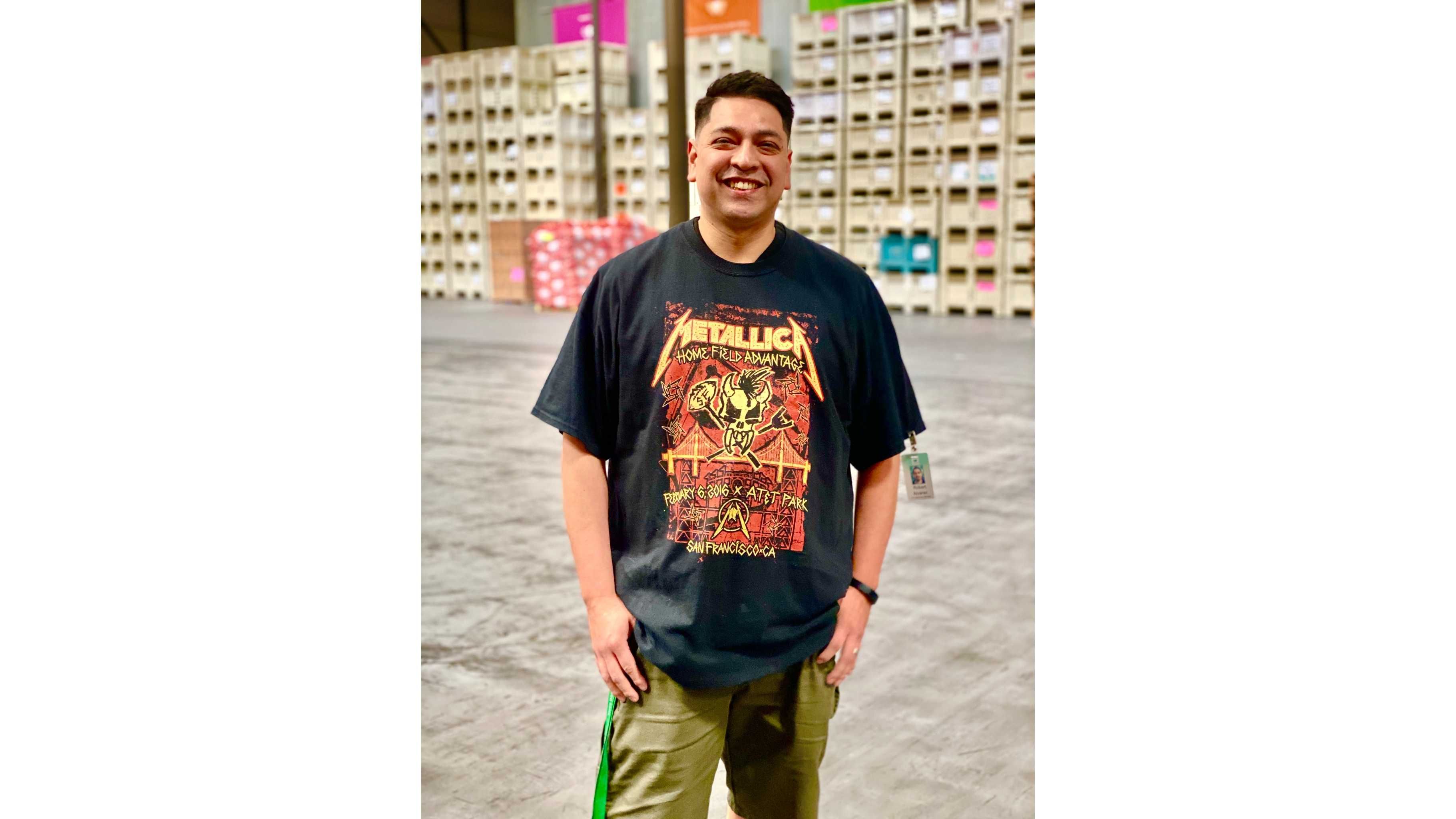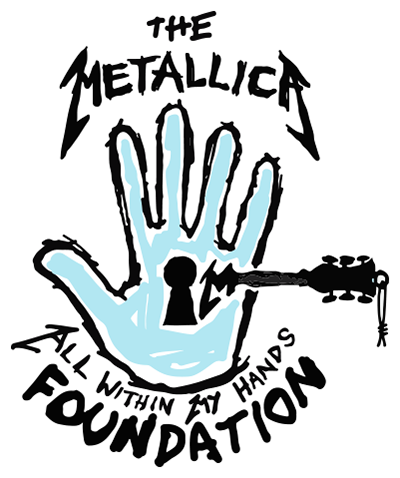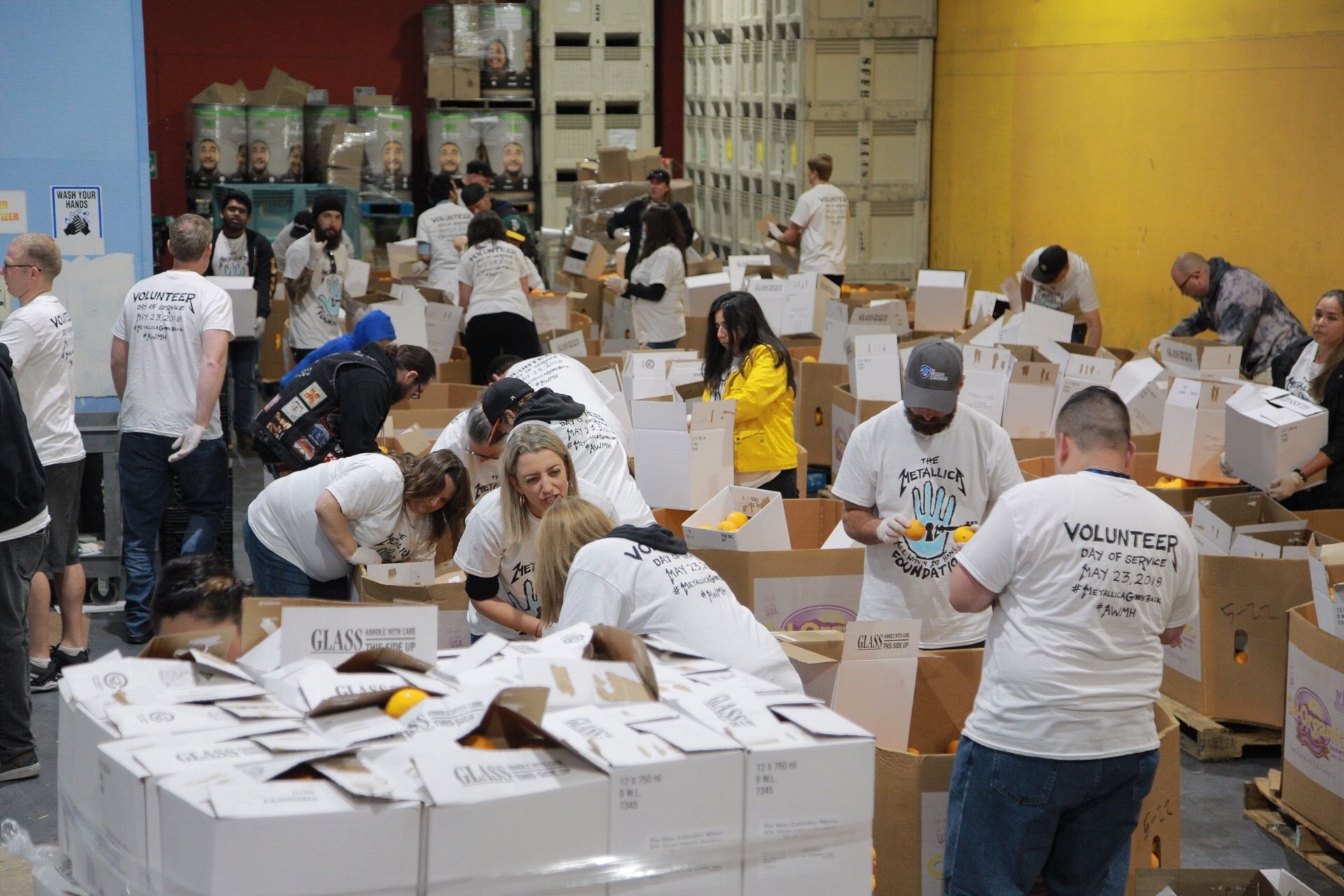The San Francisco-Marin Food Bank - Frontline Warriors In Our Newly Emerging World
MARCH 30, 2020

BY STEFFAN CHIRAZI
Robert Alvarez, Supplemental Food Program Operations Manager at the San Francisco location of the San Francisco-Marin Food Bank. He explains to Steffan Chirazi why their work has never been more important.
I went to the Potrero Hill-based San Francisco-Marin Food Bank to interview Robert Alvarez on March 11th. It was a weird Wednesday in so much as there was instability in the air internationally about a “new flu” called Covid-19 (you might have heard of it by now) which had emerged across the world, and which appeared to be spreading here. Handwashing was more important than usual, and there was a sense of general unease, but overall, it’s fair to say that when I sat down with Robert to start our conversation at 12:15pm, there was no full comprehension as to where we were heading. The only hint had been a run on toilet paper, something we all chuckled about. What we did know, and what I did ask Robert about, was how the importance of the San Francisco-Marin Food Bank to the community was about to increase significantly. I had already heard, in casual conversation with PR Keely Hopkins, that volunteer slots had been diminished due to the immediate office closures which had been enacted by the Silicon Valley giants (who routinely send groups of volunteers to help keep the wheels rolling) in response to COVID-19. Then…came…today. Tomorrow. The day after that…
As I sit writing this story, it is March 16th. A pandemic has been declared and many people are suddenly unemployed, and/or have seen their income horrifically impacted. I learned last year that food banks have already served those in their communities who are trying to make ends meet, that food pantries don’t simply “feed the homeless,” and that a large number of their recipients are folk who cannot afford to cover all the bills and food. I would wager a guess that in the days since Robert and I had the following conversation, that number has grown far, far greater than ever before. So just as we salute the frontline healthcare and grocery store workers who are keeping our world from grinding to an even greater halt, let’s take a moment to appreciate the outstanding work the likes of the San Francisco-Marin Food Bank (and Robert) do for us all.
Before we get to the conversation, what I hope comes from all this is a greater appreciation of each other. A greater appreciation of the incredible work people like Robert and everyone at the San Francisco-Marin Foodbank do. A greater appreciation of the folks who keep us healthy, who educate our kids, who stock our supermarket shelves, who take our garbage, who clean our buildings, who sweep our streets… the public transport workers, the roadworkers, the vast numbers of truck drivers and crew folk, the roadies and venue staff who facilitate our events, the good, hard-working people who help us go about our lives. As we are seeing, many have been under-valued for too long, and some of those people will have suddenly found themselves looking to the San Francisco-Marin Food Bank and other pantries for help. Maybe we will emerge from this as a kinder society, one where everyone is valued for what they bring to the table…
STEFFAN CHIRAZI: Without furrowing too far into your childhood and upbringing, how did you get here, and where does your passion for the job come from?
ROBERT ALVAREZ: Well, I started out as a volunteer, helping out. I met a few of my current co-workers and got involved in that way. Then later on as I was volunteering, I found out that some of my friends’ family members received some of the goods we were handing out. So at that point, I became more interested in the food bank and what we do here, then an opportunity came around offering a job. They asked me if I wanted a job because a supervisor at the time saw the way I was working and how I was interacting with the volunteers and helping out, so that’s how I ended up getting hired. Fifteen years later I’m still here!
SC: And you’re a San Francisco native?
RA: Yes, born and raised here. I was actually born in Saint Luke’s Hospital, and I was raised in and around the Mission area. Little by little, I’ve been seeing all the different changes that have happened throughout the years. You start to see all these changes, and then it’s not like how I remember it.
SC: So break down – again from your perspective – who is receiving this food?
RA: Yeah, a lot of people have the misconception that we’re just helping the homeless population, which is not true because we’re helping everybody in low-income and even middle-income families. Some of my friends that received food, they weren’t in housing or anything like that. They owned a house, but they were struggling at the time, so it’s families that have two incomes but it’s still one of the most expensive cities to live in. They were like, “Should I buy medicine? Should I pay the rent? Pay the mortgage? Or should I buy food?”
So I gave them more information about the Food Bank, and they were able to go to one of our distribution points to pick up more fresh produce – fruits, vegetables – and they were able to sustain for a while like that. And then once they got back on their feet, they were able to give those resources to somebody else that needed it. But yeah, there’s a lot of families out there that need it.
SC: Do you find yourself engaging in food education? Teaching people how to make a very nutritious meal in the same time as it might take you to drive through a drive-thru and get home?
RA: Yes, I have shown some of my friends’ family members and other individuals that if you go spend ten dollars at whatever fast food chain you want, you could spend those ten dollars towards getting some protein items, getting some fruits and vegetables from the Food Bank, and then you could actually make a meal. Our food nutrition team is really, really good at putting meals together with the food that we’re sending out. They see what they’re gonna get in the near future and then they sometimes go to a particular site to educate the individuals that are picking up the food at that particular agency or pantry, give them a little demo of what to do with the food that they’re about to receive. This way they’re able to use it the way that they’re able to get that nutritional value out of it.
SC: And do you find that people are responsive to that? When people pick up boxes, are they grateful to be receiving that kind of extra layer of support?
RA: Yeah. Well, we have found out that they are pretty responsive and positive, especially when they get a particular item that they are not accustomed to cooking with. The perfect example? Eggplant. I would not know what to do with it. Cauliflower as well. But our nutrition team is really good at putting little recipes together and making it work.
[A helpful interjection from a woman working nearby]: I should tell you also, the nutrition team does videos and they’re some of our best performing content on the website.
SC: Okay, shifting gears, let’s get into Metallica, specifically your love of Metallica.
RA: Well, I was born here in San Francisco, my parents listen to a lot of classic rock and metal, so I grew up with it. I lived in Mexico for a while as a kid, and that’s when I started listening to it a lot more because Metallica was big in Mexico. Then once I came back, I went to concerts and saw them live, so it just grew even more. And then once I worked here, and started working with some of the band members, that just was amazing.
SC: Talk about how it was when Lars came down to the food bank on the last All Within My Hands Day of Service?
RA: It was amazing to see the fan base that we had here locally that came out and showed the support, not knowing if they were gonna see Lars, but just to know that they came here to help out through the All Within My Hands Foundation. And then to just see him roll in, help out, and interact with the fans was truly amazing, because what a moment for all the fans that came out here that day! I was able to work with him on a more personal one-on-one basis, which was great, but it was still amazing to see him interact with everybody as much as time permitted. Plus, he was able to send me to their concert in Sacramento, which I greatly thank him, and All Within My Hands, for.
SC: Did you ask him any “deep” questions? Care to share with us?
RA: I did ask him what he does in his time off, because most people go vacationing and traveling, but he does that on a regular basis! He said he goes out and does like a country trip where there’s nobody around, which I understand because after being around so many people you would just want to spend time with your family, your loved ones and just relax. So that’s something that resonated with me.
SC: Getting back to food bank business, I know there’s a service in place where the food bank serves those who cannot physically get to a pantry.
RA: Yes, we have developed a program called Home-Delivery Groceries for individuals that are homebound. We send out a team that takes food to their houses, and this way, they’re able to still receive some of the fresh fruits and vegetables at home.
SC: There’s still, for some people, a ridiculous stigma attached to asking for help generally, when the truth is, we all need help at some point another. Do you find that the “issue” of going to a food bank is dissipating?
RA: Well, it’s still a little bit of an issue but we are trying to address that. A lot of people, like you said, have a pride or they feel too vulnerable if they receive some food from a food bank or one of the agencies, because a lot of people don’t want to seem like they’re asking for help. So at that point, they sometimes choose to struggle a little bit, but we’re still making it accessible for everybody out there.
SC: It would be churlish of me not to address the current situation [as written above, the COVID-19 viral pandemic had not taken nearly the grip it currently has – ED]. There’s probably going to be a lot more stress on the system with the current situation that’s unfolding. Do you anticipate needing even more help?
RA: Right now, with everything that’s going on, not just nationwide but worldwide, we have seen a drop in volunteers, so we have been asking for some of our produce vendors to send everything pre-boxed. This way we don’t have to utilize the volunteers in that force, because normally we get food in bulk where the volunteers actually help us box it up into smaller portions. But knowing that right now we have been seeing a drop in volunteers, we’ve been asking for more boxed items as well. To make volunteers feel better, we’re stepping up hand sanitizer, we have gloves, people are being asked to keep a fair distance.
[For more information on the state of SF-Marin Food Bank in the midst of the COVID-19 pandemic, check out this statement from Paul Ash, food bank’s executive director.]
SC: Good to know and we’re glad to pass the message on. Okay, finally, here’s a six-cent question, a fun question. When you’re on the forklift, or when you’re doing what you do, not dealing with people, is there a stereo that sneaks into your ears?
RA: There is.
SC: Do you wear your earphones?
RA: I am not allowed to wear my earphones just because of safety. I have to be aware of my surroundings. But I do have a little Bluetooth speaker that I keep a little low, and then I’m able to hear some music.
SC: So, may we be privy to what you like to play?
[At this point, Robert holds his phone towards the recorder and plays “The Frayed Ends of Sanity.”]
SC: Ah ha, very good! So do you pick your song according to what you’ve gotta do? If you’ve gotta drive the forklift, do you play “Fight Fire with Fire?!!”
RA: No. I just go with whatever playlist is going on at the moment. I don’t really pick the songs, I just let it play. And then I just listen to the music and then every once in a while, when I stop, I just turn it up and enjoy it.
SC: What song do you think gets played the most on your Bluetooth speaker in this warehouse? Give me a couple.
RA: It’s either “Enter Sandman,” “Battery,” or “…And Justice for All.” From the new album, “Atlas, Rise!” and “Moth Into Flame.” I do play “The Unforgiven” to let me calm down during break time.
SC: And I have to ask one final question. If there are a couple of Metallica fans volunteering, are you allowed to turn the volume up on that damn speaker?!!
RA: Oh yeah, they always let me turn up the speaker!
The San Francisco-Marin Food Bank not only feeds people, it provides a variety of informational, and educational, platforms to promote better relationships between food and health. Check out their food-pharmacy program that addresses how diet impacts health.
You can also take advantage of information – and classes – available to help people learn to prepare good, healthy meals and snacks on a budget.


